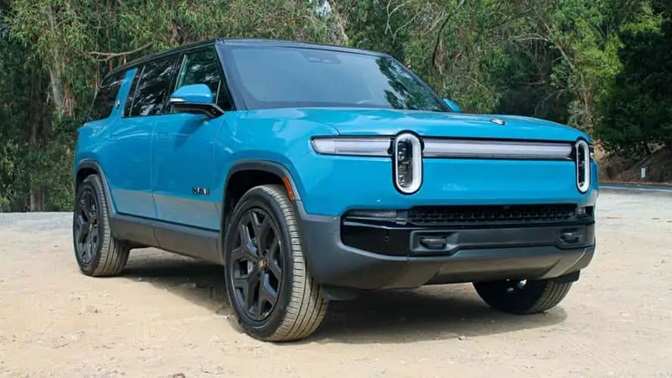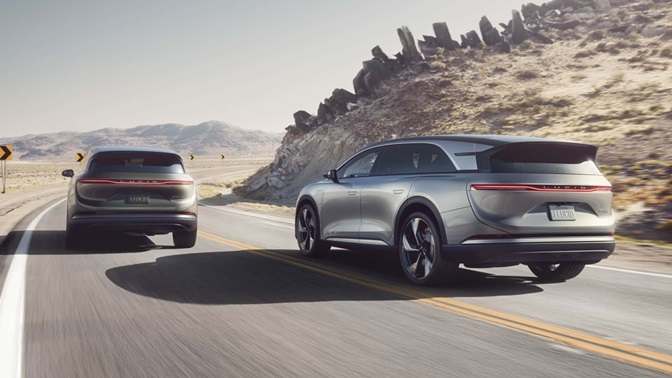The electric vehicle (EV) industry is undergoing a seismic transformation. From high-stakes financial challenges to groundbreaking innovations, the players in this space are navigating uncharted territory. This blog unpacks three significant developments shaping the EV sector: Lucid Motors’ new SUV, South Korea’s battery boom under scrutiny, and Rivian’s recent stock market success.

Lucid Motors Bets Big on the Gravity SUV
Lucid Motors, a California-based EV startup, has long been in the spotlight for its luxury sedan, the Lucid Air. While widely praised for its engineering and elegance, the Air is a high-end vehicle with a steep price tag starting at $70,000. Despite its success, Lucid now faces the need to expand its lineup to appeal to a broader audience. Enter the Lucid Gravity, a three-row luxury SUV that could redefine the company’s future.
Why the Gravity Matters
Lucid’s financial struggles are no secret. The company reported a staggering $950 million net loss in Q3 of this year, with dwindling cash reserves of $1.9 billion. The Gravity, positioned as the more family-friendly counterpart to the Lucid Air, is critical for Lucid’s survival.
The Gravity officially entered production at Lucid’s Casa Grande, Arizona, factory, making good on the company’s promise to launch before the end of 2024. With an anticipated price of $96,550 for the premium Grand Touring trim, the Gravity will eventually offer more affordable versions, but these are unlikely to arrive before late 2025.
Impressive Features, High Stakes
On paper, the Gravity is an impressive SUV. Its 440-mile range on a single charge makes it a standout in its class, and early reviews highlight its luxurious design and spacious interior. However, the real test will be whether it can compete with established players like Tesla’s Model X or Rivian’s R1S.
Lucid’s challenge is compounded by the EV market’s shift away from luxury vehicles toward more affordable, mass-market options. With financial pressure mounting and the SUV market already competitive, the Gravity must succeed where other premium EVs have struggled.
South Korea’s Battery Boom Faces Uncertainty Under Trump
South Korea has emerged as a pivotal player in the global battery market, second only to China. Companies like LG Energy Solution, SK On, and Samsung SDI have invested heavily in the U.S., spurred by the Inflation Reduction Act (IRA), which incentivizes domestic EV and battery production. However, the potential return of Donald Trump to the White House has cast doubt on the future of these investments.
The Impact of Political Change
The IRA’s subsidies and tax credits have been a game-changer, shifting the EV supply chain away from Chinese dominance. Yet, South Korean firms are now wary of Trump’s potential policies, which could roll back these incentives. For example:
- Posco Future M, a cathode supplier for GM, has delayed plant construction in Quebec due to “local conditions.”
- Companies have paused U.S. projects, anticipating reduced EV demand if subsidies are revoked.
Korean firms also fear Trump may allow Chinese battery giants like CATL to establish plants in the U.S., undermining their market position with lower-cost offerings.
Why This Matters for the U.S. and South Korea
Revoking IRA incentives would undo years of progress in decoupling from China’s battery supply chain. It could also jeopardize tens of thousands of U.S. jobs and weaken alliances with South Korea, a critical partner in the EV sector.
“Korea’s expertise in battery technology is indispensable,” says Park Chulwan, a professor at Seojeong University. Allowing Chinese firms to dominate the U.S. market would be disastrous for both South Korea and America’s ambitions to lead in EV technology.

Rivian: A Bright Spot in a Challenging Market
Amid the uncertainty surrounding EV startups and geopolitical tensions, Rivian is enjoying a moment of optimism. The company’s stock has surged recently, buoyed by strong investments, promising delivery targets, and a healthier balance sheet.
What’s Driving Rivian’s Success?
Rivian’s stock price climbed over 20% in the past month, thanks to several positive developments:
- Volkswagen’s investment in Rivian, signaling confidence in the brand.
- A $6.6 billion Department of Energy loan to support its expansion.
- Rivian’s announcement that it expects to deliver up to 52,000 vehicles this year, surpassing 2023 totals.
The company’s flagship electric truck, the R1T, competes with Tesla’s Cybertruck and Ford’s F-150 Lightning, which recently reported a 17% year-over-year drop in sales.
Looking Ahead
Rivian is preparing to launch its next-generation R2 platform in 2025, targeting a more affordable market segment. This move could further solidify its position as a major player in the EV industry. However, Rivian faces the ongoing challenge of scaling production while maintaining quality, a hurdle that has tripped up many other EV startups.
The Bigger Picture: What These Trends Mean for the EV Industry
The stories of Lucid Motors, South Korea’s battery investments, and Rivian highlight the volatility and potential of the EV market. Here’s what these developments tell us:
1. Diversification is Key
Lucid Motors’ pivot from luxury sedans to SUVs underscores the importance of catering to a broader audience. Startups must balance innovation with market demand to survive.
2. Geopolitical Stability Matters
South Korea’s investments in the U.S. show how critical government policies are in shaping the EV landscape. Political uncertainty can disrupt even the most promising ventures.
3. Resilience Pays Off
Rivian’s ability to weather market challenges and secure funding demonstrates the value of a strong long-term strategy. As competition intensifies, companies with a clear vision and solid backing are more likely to thrive.
The EV industry is at a crossroads, with high stakes and immense opportunities. Lucid Motors is betting on the Gravity to stabilize its finances and broaden its appeal, while South Korea’s battery giants navigate political uncertainties that could reshape global supply chains. Meanwhile, Rivian’s recent success offers a glimmer of hope in an industry often characterized by unpredictability.
As the EV market evolves, one thing is clear: adaptability, innovation, and collaboration will define the next chapter of this electric revolution. Whether through groundbreaking vehicles like the Gravity, strategic partnerships like those between the U.S. and South Korea, or resilient players like Rivian, the future of electric mobility is charged with potential.
Let’s watch how these stories unfold as we drive toward a cleaner, more sustainable future.
Related Post
